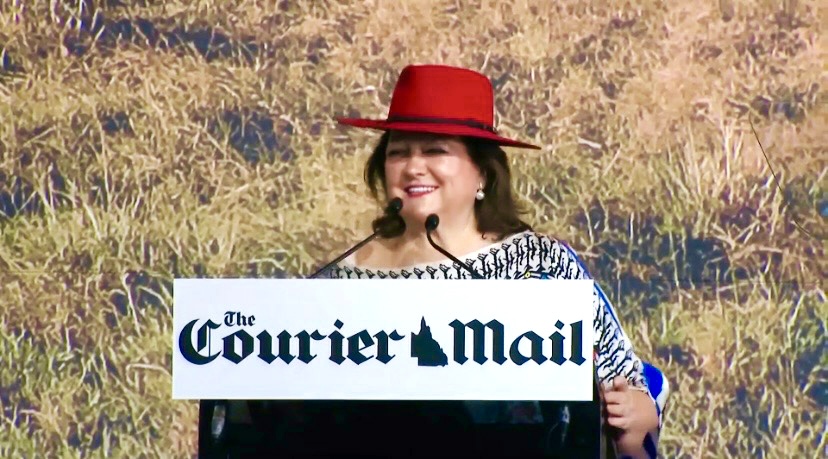

Article by Geordi Offord courtesy of the Courier Mail.
Premier Annastacia Palaszczuk has announced in her keynote speech new legislation to save the mining town of Glenden.
More than 300 homes were set to be bulldozed in the midst of Queensland’s housing crisis as miner Glencore winds up operations in Central Queensland.
The miner had a contractual obligation to remove the town of Glenden south west of Mackay as it winds up mining operations which have existed for 40 years.
Ms Palaszczuk said that her government would update legislation to ensure the central Queensland town, which was set to be destroyed as part of the rehabilitation process at the Newlands Mine, would remain.
Isaac Regional Council Mayor Anne Baker was informed of the decision by the Premier in a phone call this morning.
“And can I say, she was in tears,” Ms Palaszczuk said.
“As far as this government is concerned, it (the end of mining) will not mean the end of the life of Glenden.
“Today, I reaffirm our Government is backing strong and sustainable resource communities.
“We will introduce legislation next week to give all parties certainty in Glenden.”
Ms Palaszczuk has also spoken about how the state’s mining industry has help keep Queenslanders employed during the pandemic and boosted regional Queensland’s exports.
She also spoke about some of the key infrastructure projects in water and health, and about the new backing business in the bush fund to help businesses expand and relocate to the regions.
She also spoke about the “Backing Business in the Bush Fund”, which includes $8 million for workforce training in partnership with Queensland Farmers Federation and AgForce.
It will help businesses “expand, relocate to the regions, and adapt as Queensland competes for export markets”.
It also includes $10 million for local councils for community projects such as parks, music trails and festivals.
She ran through costs for the agricultural industry for net-zero.
Ms Rinehart said replacing machinery to electric vehicles for the bush would be a “staggering” $10.4 million to $11.4 million.
She said most properties cannot afford this, and the move could “force” families off their land.
Ms Rinehart said the Government should commit now that those in agriculture will not need to invest more than, as an example, $200,000, for net-zero policies.
She said Australia needed “practical policies” that take into account the costs.
She said the net-zero scheme required massive amounts of “critical minerals” and materials, exciting the mining industry.
Rinehart: How to “cut red tape” on mining
Ms Rinehart presented a slideshow of points on opportunities to “cut red tape” on mining in Queensland.
One of them was to amend section 260 of the mineral resources act to allow only entities with a direct property rights interest in the development to lodge objections to mining lease applications.
Another suggestion was to amend the Environmental Protection Act 1994 to allow for a legislative exemption from Section 3182B (2) and (4) where, as part of the transfer process, the landholder provides a statement that they are satisfied with a given level of rehabilitation or any transfer of existing infrastructure.
Ms Rinehart said she was supportive of the theme of the Bush Summit and hoped the Government would listen and cut some of the “red tape” associated with mining.















